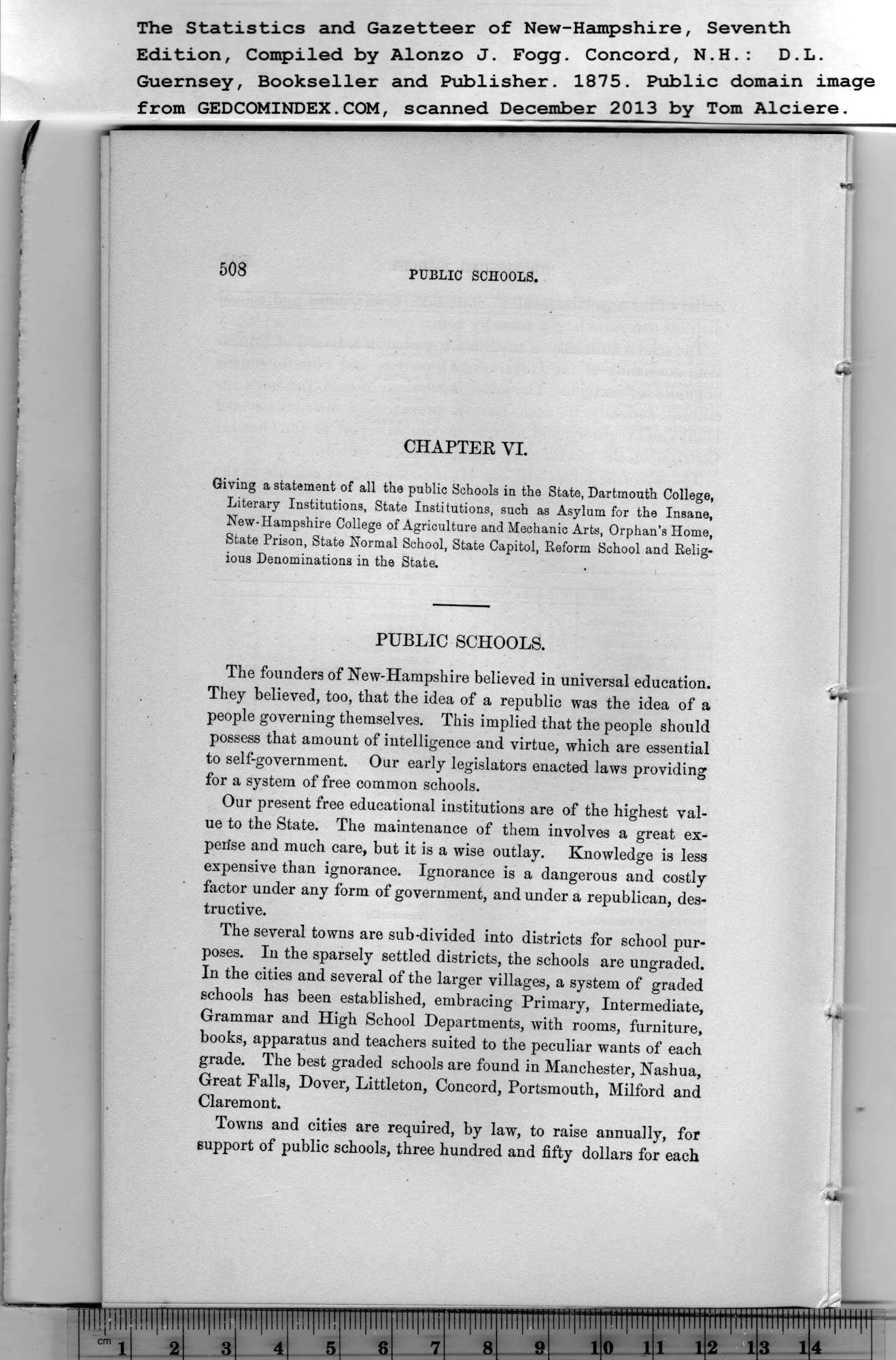|
508 PUBLIC SCHOOLS.
CHAPTER VI.
Giving a statement of all the public Schools in the State, Dartmouth College,
Literary Institutions, State Institutions, such as Asylum for the Insane,
New-Hampshire College of Agriculture and Mechanic Arts, Orphan’s Home,
State Prison, State Normal School, State Capitol, Reform School and Relig-
ious Denominations in the State.
PUBLIC SCHOOLS.
The founders of New-Hampshire believed in universal education.
They believed, too, that the idea of a republic was the idea of a
people governing themselves. This implied that the people should
possess that amount of intelligence and virtue, which are essential
to self-government. Our early legislators euacted laws providing
for a system of free common schools.
Our present free educational institutions are of the highest val-
ue to the State. The maintenance of them involves a great ex-
pense and much care, but it is a wise outlay. Knowledge is less
expensive than ignorance. Ignorance is a dangerous and costly
factor under any form of government, and under a republican, des-
tructive.
The several towns are sub-divided into districts for school pur-
poses. In the sparsely settled districts, the schools are ungraded.
In the cities and several of the larger villages, a system of graded
schools has been established, embracing Primary, Intermediate,
Grammar and High School Departments, with rooms, furniture,
books, apparatus and teachers suited to the peculiar wants of each
grade. The best graded schools are found in Manchester, Nashua,
Great Falls, Dover, Littleton, Concord, Portsmouth, Milford and
Claremont.
Towns and cities are required, by law, to raise annually, for
support of public schools, three hundred and fifty dollars for each
PREVIOUS PAGE ... NEXT PAGE
This page was written in HTML using a program written in Python 3.2
|
